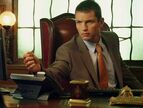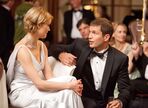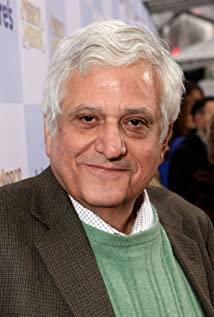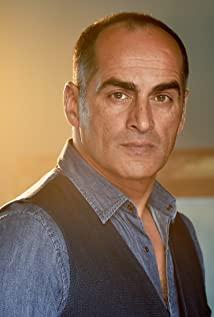Pencil Economic Research Institute http://www.impencil.org/Portal/pencilwork/20111115104629.aspx
I just finished reading this book ("Atlas Shrugged"), it is a very wonderful one This book, which I'm sure you'll enjoy a lot, and I've seen speakers today mostly honoring Rand, I'd like to add some critical thoughts.
Summarizing the experience of the brilliant victories of the socialists in the early 20th century, Hayek said that liberals should also have their own utopian ideas to attract intellectuals' interest and input and satisfy their enthusiasm for intellectual exploration.
Let's talk about Rand's utopian construction, the social construction of the "strike" camps where entrepreneurs and creators live after "strikes".
Rand's description of the process of a liberal economy gradually becoming a domination economy and its gradual collapse due to ideological and political changes is very careful and wonderful, and the critique of the theoretical foundations supporting these ideological and political changes is also vivid and powerful.
But I found some problems exposed through her utopian construction, and I can see that there may be some problems with the rational premise of her critique. I can summarize that rationalism and objective value theory, mechanical thinking, heroism, and progress. This is my basic feeling.
For the environment we live in, if you don't adapt to it, you can change it, you can quit, or you can destroy it. The most common choice for ordinary people is to adapt and quit.
Rand's utopia cannot be freely withdrawn. As a value creator in the old world, once you are "enlightened", you must withdraw and be guided from the gradually decaying and declining world (a world gradually dominated by predators). After the reader has taken a fancy to the guide to this world, you can no longer exit freely. There is a high-tech barrier between this valley and the outside world.
The money you earn in this mountain cannot be spent in the big world outside. The word "give" is forbidden in this valley. You cannot give your things to others, you must exchange them. I think there is an obsessive-compulsive disorder in this. It may also have something to do with Rand's 20 years of upbringing in the Soviet Union, she may be opposing one absolute to the other, the trouble is that both are "prohibited" despite the latter's appearance of a contract .
The big world described in the book did not collapse for a long time. In fact, it took 70 years for the former Soviet Union to transform from an incompletely controlled economy to a planned economy by political force until the collapse of this political and economic system. , If the outside world doesn't collapse soon, what if someone in this valley changes his mind? Rand's utopia is completely covered by a technological barrier, and you can't get out without permission.
Speaking of "strikes", there is a concept of picket, all strikes will have two requirements, one is material preparation, the other is picket preparation. Material preparation is to cope with prolonged time consumption, and pickets are to prevent internal and external forces from disrupting the strike. For example, one is to prevent new workers from entering the factory, and the other is to prevent those who have already struck from leaving the strike team. There will be no pickets in Rand's new world, will there be?
I fear that the world of Rand will evolve into a very tyrannical world, more terrifying than the degenerate pre-free world outside. They cannot allow individuals to withdraw freely, how will they deal with internal rebels? What kind of political model will they adopt after "taking over" the crumbling old world? Have they lost faith in freedom of speech and belief, and how will they deal with those "irrational" beliefs and speeches? Have they lost confidence in the masses? Are they going to deprive a democratic government of the disenfranchisement of property rights?
A government: incompetent to run a business (economics can prove it), incapable of levying taxes (taxation is a forced encroachment of the taxpayer’s property by the government, and the direct beneficiaries are the government itself and its controllers), and incapable of accepting gifts (violating the Rand exchange) principles), how would Rand's minimal government, which preserves defense, police, and courts, work?
Rand has a very irrational and very non-objective presupposition, that is, the time process is accelerating in the outer world, but it is almost static in the utopian valley. Seeing from an "objective and rational" reference to real experience, the external The world will go from freedom to control to planning. In the absence of external military invasion, it is likely to go through nearly a hundred years. Take the Soviet Union, Cuba, and North Korea as an example. Because of the artificial promotion of rulers who have faith plans, they quickly go away in a short time. After going from freedom to control to planning and then stagnant in planning for a long time, the social market economy welfare state in Europe has also gone through the course of several decades.
In the valley of Rand, rational "creators" with their "reason" think that the outside world will soon be unsupported, that they can soon take over the old world, and put the old world that has been popular for hundreds of years. The routines of the world change. If they are going to evolve in isolation for decades, how will they get along and get along after the initial optimism has passed?
Looking at Rand's description of this utopia, can we imagine it?
This utopia is very clean, inhabited by noble creators who have escaped from the outer world. After careful selection, their spouses and children, if they do not "awaken" to the depravity of the outer world, realize "Who is John ·Galt", reaching the realm and state of "creator", is not qualified to enter.
At the beginning, there was no plunder, fraud, theft, begging, or gifts. These "normal people" who were on strike were completely self-reliant, but what if there was a natural or man-made disaster? What if some of the "creators" are fallen, "not firm" and want to go back to the old world? How can some of them be prevented from having some "irrational" beliefs or thoughts (such as the idea that "the person who builds the protective shield is the greatest" or "the valley is the greatest"?), if they do not educate the next generation What should be done to succeed?
This utopian belief in property rights goes to the point of morbidity: that wealth is not allowed to be taken away a little by non-creators, otherwise it would be better not to create it.
In the valley, Francisco said: "Dagni, even if I reach the end of my life, even if I only produce a pound of copper a year, I will produce thousands of tons more than my father. All my predecessors are rich - for that pound of copper will be rightfully mys and will be used in a world that recognizes it."
This is a small society, the division of labor cannot be refined, and the market is not developed enough, so the judges of the old world go to raise chickens; the aircraft manufacturers of the old world make bacon; the car manufacturers of the old world open grocery stores. Galt bought Dagny's breakfast, Dagny said this is the most expensive breakfast, why? Because it's the bacon from the best airplane makers, the eggs from the best judges, and Galt says it's the cheapest breakfast? why? Because the looters didn't take a little bit, it was entirely ours.
Wouldn't anyone in this ideal country have reasonable ideas and behaviors to trade with the outside world because they can obtain higher value returns? How the Galts prevent these actions and thoughts from happening.
And in self-deception, the original oil tycoon Witt said heartily, pointing to his tank: "A gallon here is worth more than an entire train in hell—because it's mine, and every drop counts. Only for myself."
He added, "There are no dirty jobs in the world - there are just dirty people who don't want to do it."
In this valley: only those who produce, not Spending talent can be anyone's market.
So what should the playboys who have inherited the legacy look like? Does the producer also depend on whether the consumer is a producer before selling to her? Is RAND against inheritance rights?
What is the difference between this and China's ideological propaganda decades ago? A common trait is self-deception.
There is a rule in this utopia that only one of the 12 months of the year is a trading month, and the other 11 months are busy. Transactions in the external world are carried out continuously. Rand does not recognize that value is not objective but subjective. It is constantly changing due to time and place. arrange.
In this utopia, there are three great heroes with superhuman talents. When they were young, they were taught by a philosophy teacher and a physics teacher. For the people in the outside world, one of them pretended to be the leader, and the other was a robber. deceive, deceive fraudsters.
They are also fighting against the real world, and will eventually "take over" the world, a circle of "superhuman teams" known as normal people, saying that they are superhumans because they are all pure beauty under Rand's morality Flawless and incredibly intelligent and creative. They form a picture of a Plato Academy, which historically appears to be a training ground for tyrants.
Philosophical tutor Dr. Axton, Plato in this ideal country, said: "Only with an outstanding mind and an outstanding character can you not be infected by the poisonous atmosphere that has been deposited in society since ancient times - can you be like a person, because People are rational."
A mother in a valley said, "Here, everyone thinks it's appalling to give children irrational, even the slightest hint.
" The long-term colonial ecology is nourished by the spiritual civilization of the mother country.
While Rand's utopia was constructed by completely abstract principles and philosophers and supermen who believed in these principles, her Atlantis had a strong French "worship of reason" atmosphere.
I don't know why Rothbard has the Rand cult, I guess because of her platonic philosophical cult and Nietzschean cult of superman.
This Atlantis, which has left the big market of the big society and the tradition of humanistic knowledge, can really continue? Including their creativity?
In addition, there are literary things, aesthetic breath, blonde hair, and Roman and Greek temperament, etc. The appearance of the positive characters has been beautified. It seems that a work that promotes objective rationality, brain creation and noble soul should not be Such a beautiful portrayal of the appearance of the frontal characters.
This utopia, which has abandoned the human civilization for thousands of years, is destined to be short-lived. If it lasts a little longer, it will reveal its authoritarian and evil nature.
Why did Rand conceive such a utopia? After she made such a wonderful critique of the domination economy and its political and ideological foundations, such an ideal state appeared. I think it has something to do with Rand's own ideological premise, which is what I just said Rationalism.
The Chinese say that Shennong invented agriculture, Fuxi invented animal husbandry, and Suiren invented artificial fire. Is it true that such a person named Shennong invented agriculture? Certainly not. I guess it was a group of people from a tribe later revered as the Shennong clan who accumulated experience and knowledge bit by bit over a long period of time and accumulated food production techniques that can be called agriculture.
I believe that all human civilizations, whether natural science or human society, are not created by a group of people called "creator groups", but a series of cumulative user behaviors of the application of various available information. Yes, and not any one genius has the ability to understand it all.
Creation is not the exclusive ability of some individuals or groups that can be called "creators", but the accumulation of a series of creation behaviors and utilization behaviors of philistines and mortals. Extensive use of existing knowledge and information, and other uses of the creator's original purpose, create greater value.
There is no way to objectively evaluate the behavior value of the sender and disseminator of information, and can only make a subjective value evaluation from the perspective of the information user. This subjective value judgment is not affected by the creator's value assignment and value expectation. Taking advantage of how people use it, the inventor or discoverer has no way to intervene and no way to expect.
The line between creators and predators is less clear.
Can a creator make restrictions on how his creations are used? Couldn't an object be found to have infinite potential uses by different users?
Isn't the requirement to limit user expectations due to the insufficiency of the creator or inventor's intellect?
After all, the judgment of value comes from the "subjective" judgment of the user, and is not given and expected by the "objective" of the creator. The judgment and choice of information users on opportunities is the source of creating value.
A person may not live for the needs of others, but if he did not create for the needs of others, then there seems to be no complaints about the incomprehension and ingratitude of others.
Although wealth is not a natural resource, the "wealth" accumulated by the common knowledge of the predecessors of mankind is indeed "natural" without property rights.
The value of individualism is not because individuals are volitional and rational; it is because there are no rational and volitional groups.
It is not only through hard thinking that we can be convinced and act. Behind the habit of action without thinking is the silent knowledge and the background of thinking.
This passage reminds me of Hayek's view: that the world is the product of the evolution of human activities rather than the product of human rational design.
In Rand's Utopia, these "normal people" who built Noah's Ark (actually inhuman, with a masochistic tendency) are pitiful. They have no self-consciously ugly conceit. Utopia, and then deceive yourself.
Intuition outside of reason is also a kind of knowledge. When making decisions, entrepreneurs are not pursuing rational precision, but mobilizing all their own experience and intuition to make relatively vague probability-like judgments. The long-term accumulation of experience behind habits that are not easy to explore is the background for rationality to work effectively.
Socialism and theism, one appeals to God and the other to society, are both simplified grasps and appellations of the truth of the spontaneous order of mankind inherited from the predecessors, which is external to the individual and even to the contemporary people. Their mistake is that they feel the existence of this kind of thing, but do not regard it as the result of civilization but worship it as the cause of civilization, and Rand's reason is necessarily insufficient because it is personal, It is obviously irrational to place the basis of the world entirely on the rationality of the thinking individual at the time and to exclude the accumulation of countless agency experiences.
In addition, we need a very long time to understand the habits that we can't understand at once, and the rational reasons behind them. But maybe the first step is a more rational and safe approach. The first step is to accept it, and then think about it and criticize it. She also ignored the intuition outside of reason. Behind the intuition is a lot of accumulated experience and feelings that you can't put into words.
A country that allows free exit is a meaningful country, and no one can choose and determine the most appropriate proportion of the size of the country in the society (from zero to infinity) for another person he is willing to accept ( How small is the smallest state, how large is the welfare state). "It's hard to buy happiness with money." Personal freedom of choice is the most important thing.
Let freedom itself prove that it is destructive, creative and attractive, that it is not afraid of individual free choices, no matter how "irrational" those choices may seem at first or in the end. In this selection process, the selected individual uses all his accumulated knowledge to use his rationality and his intuition, subject to some seemingly rational taboos and needs, using externally available information and resources to judge, choose, decide, and act. .
A free world is not a world without pillage, fraud, stealing, begging, but some governmental jurisdictions that allow the free movement of individuals and their property, and that may be enough.
Finally, what I want to say is that the free choice of individuals is the most important thing. Any free world should be able to enter and exit freely. The free world should be able to prove to everyone that it is capable of obtaining what Rand said is rational. , People with brains and thinking ability are finally recognized.
Just like the old revolutionaries in China who have been engaged in communist revolutions all their lives, they happily let their second and third generations go and live in the free capitalist world, not in their Create and rule the world. Human reason has the ability to recognize the simplest facts of experience.
2007-12-16
View more about Atlas Shrugged: Part I reviews











